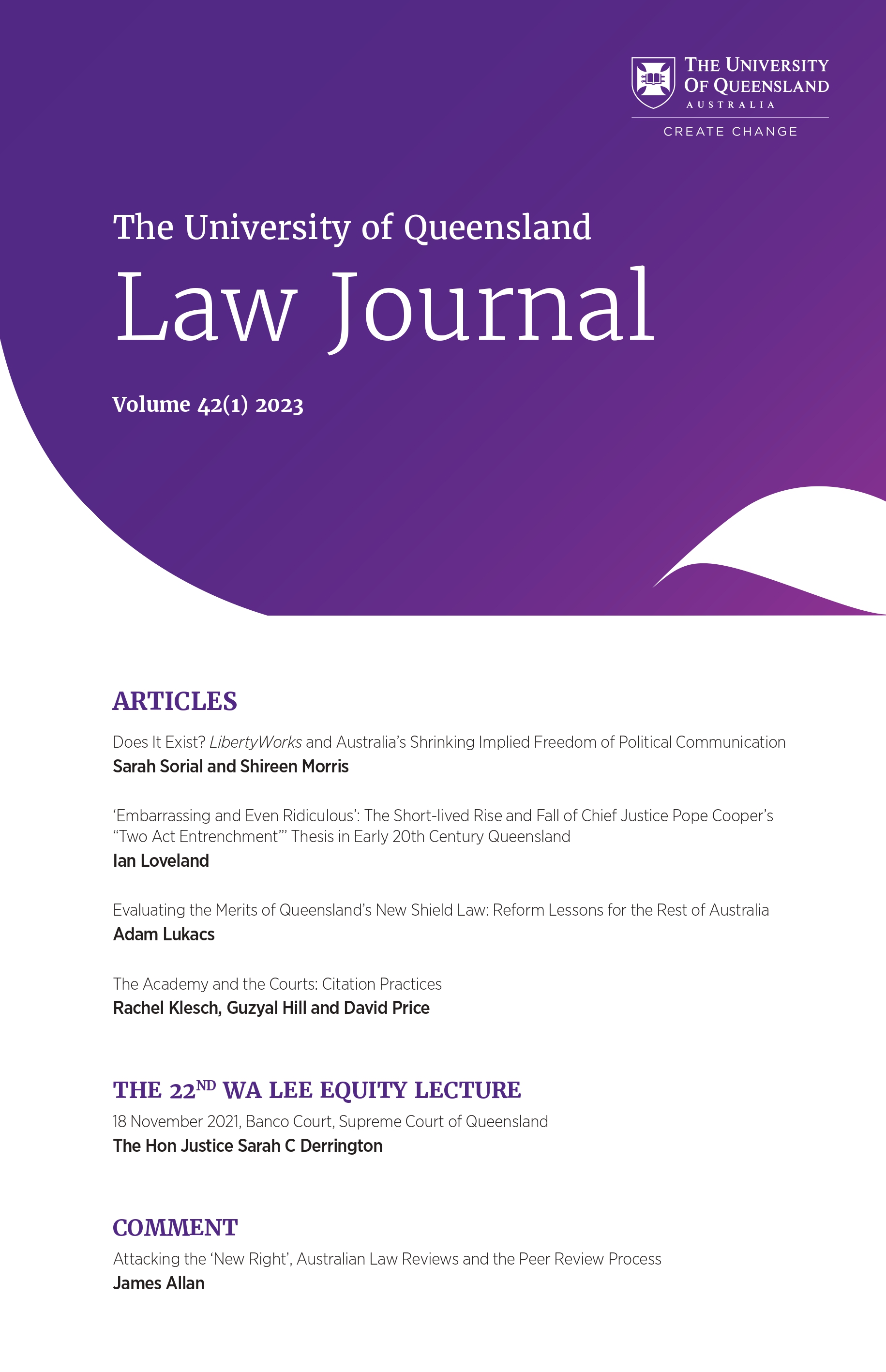Does it Exist? LibertyWorks and Australia’s Shrinking Implied Freedom of Political Communication
Published 2023-05-22
Keywords
- Free speech,
- Constitutional Law,
- High Court,
- Implied freedom of political communication
Abstract
In this article we examine the recent High Court decision in LibertyWorks Inc v Commonwealth of Australia (‘LibertyWorks’). We argue that this decision fails to properly apply the implied freedom of political communication (the ‘implied freedom’) in four principle ways. First, the majority judgments do not properly grapple with the complexities of legislative purpose. The Foreign Influence Transparency Scheme Act 2018 (Cth) (‘FITS Act’) targets foreign influence rather than just covert and corrupt foreign interference, yet the judgements blur this important distinction throughout. If the true legislative purpose of the FITS Act is to increase transparency to prevent foreign influence, this purpose is illegitimate and incompatible with Australia’s representative government, so the FITS Act should fail on this basis. Alternatively, if the true purpose is to increase transparency to prevent foreign interference, that legislative purpose is not served by the scheme, because it is ineffective in achieving its aim. Second, the majority in LibertyWorks do not properly assess the legislative breadth of the FITS Act, including the wide range of actors to which the obligations to register relate. This, we suggest, imposes a broad and, arguably, unbalanced burden on free debate. Third, the majority do not pay sufficient regard to the different tiers of registration, which create not only public, but also private (and therefore unjustified) catalogues of information. Finally, Steward J’s constitutionally conservative (yet paradoxically activist) claim that the implied freedom may not exist appears to invite a future constitutional challenge to the implied freedom. We argue his Honour may be right, but not for the reasons he elucidates. In our view, the implied freedom was essentially non-existent in this case because it was not robustly applied by the High Court.
